Oral History with Emiliano Francisco
Emiliano Francisco was born in 1904 in the town of Laoag, Ilocos Norte in the Philippines. He immigrated to the U.S. after high school and attended the University of Idaho, where he received his bachelor’s degree. In between school years, Emiliano traveled to Alaska to work in the canneries. In this excerpt from a 1975 oral history conducted by Carolina D. Koslosky, Emiliano discusses his work in Alaska and union organizing, including his first work in journalism with the Cannery Workers Union paper.
Mr. Francisco: I didn't really feel the Depression because at that time I was going to school and summertime I go to the cannery. That money you earn from the cannery was enough money for you to go to school, and then when I was in school my earnings was supplemented by washing test tubes. They were paying me 50¢ an hour and that 50¢ was more than what the boys were making yet the boys were making only 12¢ an hour at that time. So I didn't really feel the Depression because when the school was, it was summer then and time for me to go to Alaska again, I come back and go to Idaho, you see. I didn't really feel it. Not like the other people here, they really feel the Depression.
Ms. Koslosky: You said that you didn't go to the University of Washington.
Mr. Francisco: Just, well, I was more or less influenced by this Filipino professor, his influence, "Come on, let's go and let's have fun."
Ms. Koslosky: What did you major in?
Mr. Francisco: I did not major in journalism; I majored in English and philosophy. I took my elective as newspaper writing, that's all. I did not major in that. But only some experience, all this, only some experience.
Ms. Koslosky: You graduated?
Mr. Francisco: Bachelor of Arts.
Ms. Koslosky: Did you…?
Mr. Francisco: I did not finish in 5, 4 years. It was staggered because of going to Alaska.
Ms. Koslosky: Well, if you graduated, when you graduated, did you practice your passion after you got out of school?
Mr. Francisco: After I got out of school, that was the time we organized the union. We called the union the Cannery Works and Farm Laborers Union, okay.
Ms. Koslosky: That was the only Filipino Union?
Mr. Francisco: Well, that was Oriental, yeah majority of Filipino, yeah.
Ms. Koslosky: Do you know why this union was formed?
Mr. Francisco: Well, simply because to get higher wages and better living conditions, see. There was a law, then passed, that we are allowed to strike, you know. And that was the only way we made our demands. That was the wool that was rough. I also organized the Culinary Union. In town, you know. But boy, that was a rough deal, very rough.
Ms. Koslosky: Well, if there were unions, I mean, couldn't you have joined another union comparable to that?
Mr. Francisco: Well, no, there was some other unions, but our[s] were centered to the cannery workers union and farm laborers, when the majority of the cannery workers are Filipinos. That was the reason we had to organize the cannery workers.
Ms. Koslosky: There was no other union in existence?
Mr. Francisco: No, no. This also consist of the Japanese, you know. The only Japanese and Chinese joined this union. And I practiced mine by being the editor of the union paper there, see. Union paper.
Ms. Koslosky: Could you make a living from this, I mean, did you make a living from this?
Mr. Francisco: Partly, I made a living from that and of course I was getting my wages. They paid me … they paid me $400 for the paper, they paid me. Yeah.







